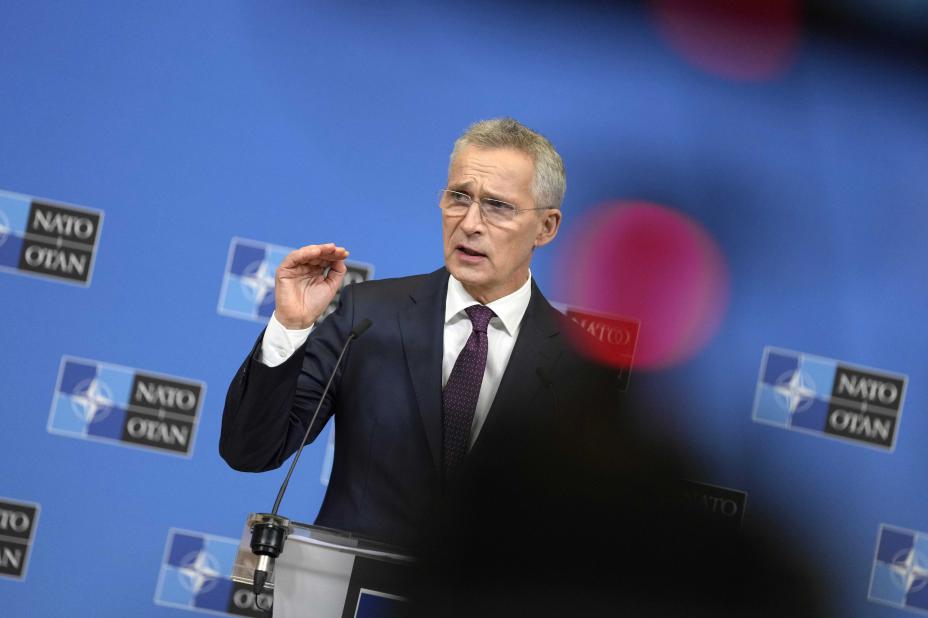NATO chief Jens Stoltenberg presented his annual report for the alliance on Tuesday. In it, he writes, among other things, that last year seven Member States achieved the objective of devoting at least 2% of their gross domestic product to defence. Photo: Virginie Mayo/AP/NTB
By NTB | 21.03.2023 14:54:05
Policy: The previous year, eight of NATO’s 30 members had met the 2% target, compared to nine countries in 2020, when Norway was also above the limit. When the target was set in 2014, only three countries achieved it.
– At the Vilnius summit in July, I expect member states to adopt a more ambitious target for defense budgets, NATO chief Jens Stoltenberg said during the presentation on Tuesday of his annual report for the defense alliance.
Other countries that have reached the NATO target are the United States (3.46%), Lithuania (2.47%), Poland (2.42%), the United Kingdom (2. 16%), Estonia (2.12%) and Latvia (2.07%). Croatia was finished in 2021, but fell to 1.91% last year
The list is therefore dominated by the Baltic Sea countries with a short distance and a tense historical relationship with Russia.
In the report, Stoltenberg also writes that Canada and European NATO countries last year increased their defense budgets for the eighth consecutive year. The increase from 2021 was 2.2%. Over the past eight years, countries have increased their defense budgets by $350 billion – more than NOK 3.7 trillion at the current exchange rate.
In Norway, 85% said they would vote for NATO membership in a referendum, while 7% would vote against.
– We have seen signs that Russia has asked China for lethal assistance, the secretary general said, warning China against supplying arms to Russians.
He also points out that the meeting between Presidents Vladimir Putin and Xi Jinping in Moscow this week shows that the two countries are getting closer.
Greece had the largest defense budget in 2022, measured as a percentage of GDP, at 3.54%.
Last year, Norway’s share of defense was lower than the year before, when, according to NATO’s annual report, we spent 1.74% of GDP on defence. This decrease is probably mainly due to the increase in oil revenues due to high energy prices following the war in Ukraine.
Stoltenberg also referred to a survey which shows that support for NATO has increased in member states and that 70% of citizens would vote to retain membership if a referendum were held. Support is highest in Poland (89%) and lowest in Montenegro, which at 48% is the only country where less than half say they would vote for continued membership. 32% of Montenegrins say they would vote against membership, while 20% say they don’t know.
Naturally, Stoltenberg also spoke about Finland’s and Sweden’s membership applications over the past year. He said that Russia is inclined to bring NATO closer after the war in Ukraine, not further, as the country wished.
(© NTB)

